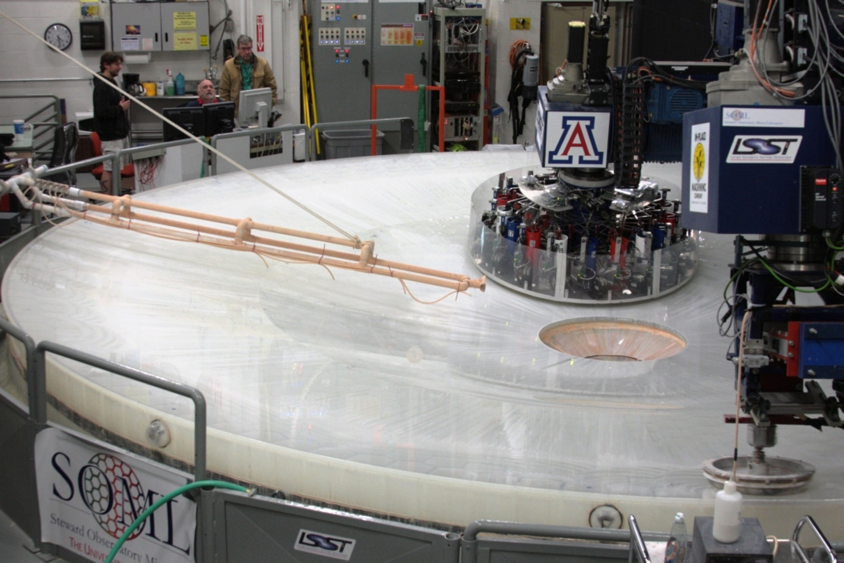A UA doctoral student and professor duo has created a possible replacement for the current data management and retention system used in IT and computer science.
When a company or organization needs to store data, they typically have no choice but to use RAID (Redundant Array of Independent Disks) 6, the current storage system, which began at the University of California, Berkeley in the 1980s. There are several problems with the system that have become apparent as technology grew more complex and people needed to store more data at a quicker rate.

“The challenges grew over the years,” said Marek Rychlik, the mathematics professor involved in the project. “People need data to be stored faster and faster, and well, the faster you store it the faster you lose it.”
RELATED: UA startup receives funding for computer data error correction
RAID 6 is prone to failing and losing the stored data. RAID 60, a combination of several RAID 6 machines, is an attempt to increase the amount of storage for data–important for technological systems such as medical scanners, but if two of the disks fail, all the data can be lost.
“If one fails and you are a system manager, you probably won’t sleep well,” Rychlik said. “The second drive could fail at any moment, and you need time to retrieve the content of the first drive.”
This process of recovery could take days, at which point any of the other drives in the RAID 60 could fail.
This problem affects the medical industry, businesses, financial institutions, movie filming and other fields that need to store and retrieve large amounts of data.
When mathematics doctoral student Mohamad Moussa came to Rychlik looking for ideas for his dissertation, Rychlik suggested he attempt to solve this problem. Over the course of three months, Moussa and Rychlik used error-correcting code to develop a mathematical algorithm that would be able to store and retrieve data in a more cost-effective, reliable and timely fashion.
Rychlik said it is an “extra-fast dissertation project.”
The team’s main improvement over RAID 6 is that it can recover data when four known discs fail and when two unknown discs fail. This is twice the amount of data RAID 6 can recover.
A known disc is a disc containing data whose location and failure can be pinpointed by supervisors, while an unknown disc’s location is difficult to find, even when it is clear that a disc is failing. While they present different challenges, it is important to recover the data in a timely manner no matter what type of disc fails.
RELATED: Campus iSpace offers students cutting-edge tech, instruction
“We are able to recover even if the second [unknown disk] fails,” Moussa said.
This recovery does not slow down the system, which was one of the major challenges of data retention technology: the sacrifice of speed and efficiency to ensure security.
The new system also protects against silent data corruption, undetectable errors in computer data that can fundamentally alter original information. Errors wouldn’t occur as often; RAID 6 experiences silent data corruption as often as every three hours.
The market is prime for a brand-new data retention system.
“The immediate need arises right now,” Rychlik said. “There’s a doomsday article which says, in 2019, RAID 6 will not work.”
Moussa and Rychlik hope that their system may be able to replace RAID 6 as a more efficient system. The algorithm’s use extends beyond data storage into a wide variety of fields.
“This algorithm also works with data communications,” Moussa said. “You are sending data, … you have something that corrupts your data, so you can use this algorithm to recover your data.”
An example of this situation would be sending data into deep space that is then hit with ultraviolet light. Using the algorithm, an individual could recover data exposed to radiation and other dramatic influences.
The new system will cost less, both financially and in terms of energy, than RAID 6, and Moussa said small businesses, in addition to large-scale organizations, would be able to utilize it to their advantage. The developers currently hold a patent on the system and will be presenting it later this year.
Follow Nicole on Twitter.








